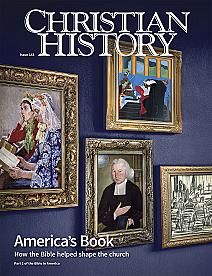Fox Dreamed Big to Teach Kids to Read the Bible
WILLIAM FOX was a successful businessman—and a dreamer. Born in Clapton, Gloucestershire, England, he showed business aptitude early. At the age of ten, though very poor and uneducated, he made a resolution to own the manor of Clapton. It was a goal he would one day achieve.
At seventeen, he moved to Oxford to work for a draper (cloth manufacturer and seller), and after his marriage, he moved to London. In London, he prospered in the wholesale trade. Concerned for those as poor as he had once been, he advocated legislation to improve their condition. Meanwhile, he opened a school for poor children and provided clothes as he was able. In those days, there were no schools which charged no tuition and educated the lower classes. Fox, a Baptist deacon, developed a plan for day schools to teach England’s entire lower class to read the Bible. However, the task seemed so daunting no one else would seriously consider it.
One day he read a short article in the Gloucester Journal describing the Sunday school work of Robert Raikes. Fox immediately wrote to Raikes, detailing a plan for a Sunday school society to accomplish what he had originally hoped to do with day schools.
Raikes responded, “I am full of admiration at the great and noble design of the society you speak of forming. If it were possible that my poor abilities could be rendered in any degree useful to you, point out the subject, and you will find me not inactive.”
On this day, 7 September 1785, Fox headed up a meeting at 4 PM at Paul’s Head Tavern in London. Several prominent philanthropists took part. The result was the first Sunday School Society for Britain. Its purposes were to
“to prevent vice; to encourage industry and virtue; to dispel darkness and ignorance; to diffuse the light of knowledge; to bring men cheerfully to submit to their stations; to obey the laws of God and their country; to make that useful part of the community, the country poor, happy; to lead them in the pleasant paths of religion here, and to endeavor to prepare them for a glorious eternity.”
The society soon established rules, paid for textbooks, provided funding, and recruited volunteer teachers. It published its resolves in London newspapers and issued a circular newsletter describing its plan. As a result of its efforts, close to four thousand Sunday schools were formed, educating thousands of children who otherwise would have had no schooling. Sunday was chosen because it was the one day of the week that working children had free.
—Dan Graves
----- ----- -----
William Fox's innovation spread worldwide. "Young 'Bible theologians'" shows the influence of Sunday schools in America, from Christian History #143, America's Book






